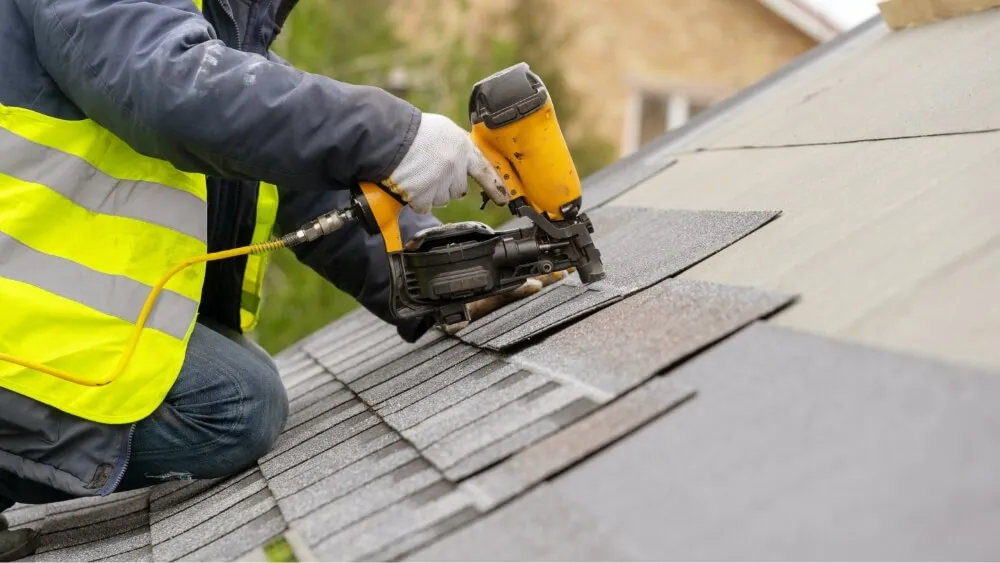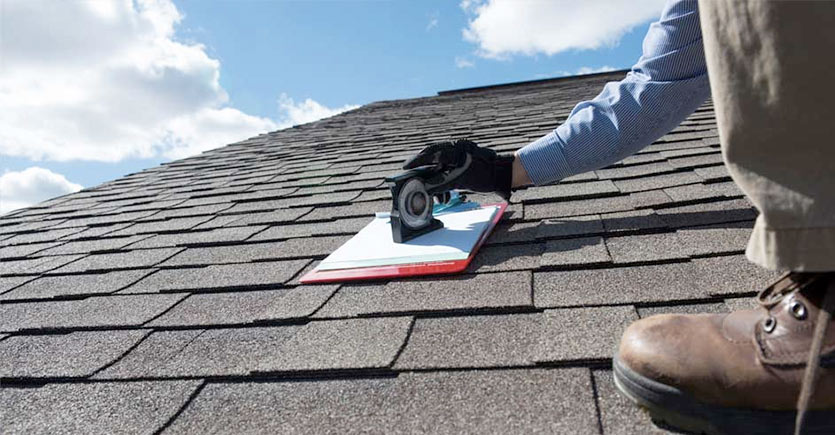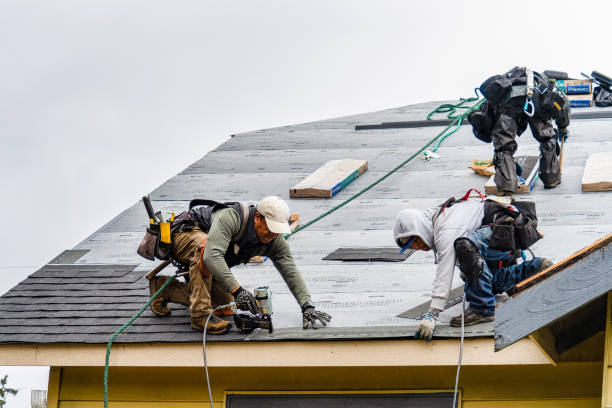Protect your home with the help of a licensed Roofing Contractor for secure workmanship.
Protect your home with the help of a licensed Roofing Contractor for secure workmanship.
Blog Article
How to Review Different Roof Alternatives for Your Structure Demands
Examining roof covering choices for your building calls for an extensive approach that thinks about different aspects such as the planned use of the structure, regional environment problems, and product attributes - Toledo Roofer. It is crucial to consider the advantages and drawbacks of different roofing types, from asphalt shingles to steel and clay floor tiles, while also factoring in initial costs and lasting maintenance.
Evaluating Your Structure's Requirements
To properly review roof covering choices, start by extensively evaluating your building's requirements. Begin by thinking about the building's meant usage, as different frameworks may require varying roof covering requirements. For instance, residential roofs often focus on looks and insulation, while commercial structures might concentrate on longevity and load-bearing capability.
Following, review the local environment conditions that will affect roofing efficiency. Elements such as temperature variations, precipitation levels, and wind patterns can affect material option and design. A roof that succeeds in a warm environment might not execute too in locations susceptible to heavy snowfall or severe warm.
In addition, analyze the architectural stability of your structure. Make sure that the existing structure can support the chosen roof materials, particularly if thinking about heavier choices. It is likewise vital to evaluate any type of regional structure codes or guidelines that may determine details requirements for roof.

Comparing Roof Products
Once a detailed assessment of your building's requirements has been completed, the following action involves comparing different roof materials. Each product provides distinctive benefits and downsides, making it vital to align your choice with your details demands and conditions.
Asphalt tiles are commonly identified for their cost and simplicity of installation, making them a preferred option for property structures. On the other hand, steel roofing, known for its sturdiness and longevity, can endure severe weather however may include a greater preliminary financial investment.
Clay and concrete tiles supply excellent thermal insulation and aesthetic charm, particularly for Mediterranean-style architecture, yet they call for a more durable architectural support as a result of their weight. Wood drinks deal an all-natural appearance and great insulation residential or commercial properties but may demand more upkeep and are vulnerable to fire dangers.
Assessing Expense and Budget Plan
Assessing your roofing alternatives necessitates a mindful examination of cost and spending plan factors to consider. The total spending plan for a roof task comprises several variables, consisting of product expenses, labor costs, upkeep, and potential long-lasting cost savings. It is vital to develop a clear budget before discovering details roofing materials, as this will certainly guide the decision-making procedure and assist you stay clear of overspending.
Begin by obtaining quotes from numerous specialists to recognize labor expenses in your region. Guarantee that these price quotes consist of all essential services, such as elimination of the old roofing system, installment, and any kind of added attributes, like insulation or air flow renovations - Roofing Contractor. Next, analyze the cost of various roofing her explanation products, thinking about both preliminary installation expenses and expected lifespan

Understanding Energy Effectiveness
Power performance plays a critical function in the option of roof materials and systems, dramatically impacting both energy consumption and overall convenience within a structure. A well-chosen roofing system can improve thermal efficiency, minimizing the demand for home heating and cooling down systems, which in turn reduces energy expenses and decreases ecological impact.
When reviewing roof options, consider products that reflect as opposed to absorb heat. Light or reflective roofing products can substantially decrease roof covering surface temperatures, resulting in reduced power use during hot months. In addition, correct insulation and ventilation are necessary to optimize the energy effectiveness of the whole roofing system. Insulation prevents warmth transfer, while ventilation reduces warm accumulation in the attic area.
Another crucial factor is the roof's long life and maintenance needs. Sturdy materials that call for much less frequent replacement contribute to long-lasting energy savings. The energy effectiveness of a roof system can additionally be analyzed with its conformity with established sustainability scores such as ENERGY STAR or LEED.
Considering Aesthetic Allure
A roof's visual allure significantly influences the general look of a building, enhancing its architectural design and enhancing aesthetic charm. Toledo Roofer. When evaluating roof covering alternatives, it is vital to consider exactly how the selected material, shade, and layout will integrate with the existing structure and community. A well-designed roof can boost more even the most basic of structures, changing them into aesthetic focal points
Various roof covering products offer numerous visual high qualities. Conventional tiles might stimulate a classic beauty, while steel roofing can present a modern, smooth look. Furthermore, the shade of the roofing material plays a critical duty; lighter tones can make a building appear more large, while darker tones might develop a cozier setting.
Moreover, architectural components, such as dormers and eaves, can boost the roof's visual influence. It is suggested to seek advice from specialist developers or architects to make certain the chosen roofing choice straightens with the total design intent. Ultimately, a roof must not only supply practical benefits but also add positively to the building's aesthetic, mirroring the proprietor's preference and the personality of the surrounding setting.
Conclusion

Report this page